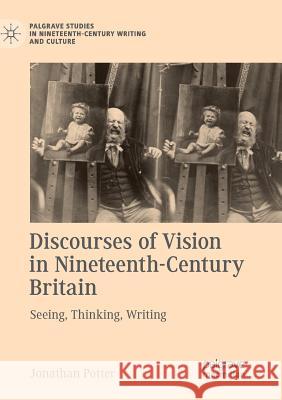Discourses of Vision in Nineteenth-Century Britain: Seeing, Thinking, Writing » książka
topmenu
Discourses of Vision in Nineteenth-Century Britain: Seeing, Thinking, Writing
ISBN-13: 9783030078423 / Angielski / Miękka / 2018 / 269 str.
Kategorie:
Kategorie BISAC:
Wydawca:
Palgrave MacMillan
Seria wydawnicza:
Język:
Angielski
ISBN-13:
9783030078423
Rok wydania:
2018
Dostępne języki:
Numer serii:
000267834
Ilość stron:
269
Waga:
0.33 kg
Wymiary:
21.01 x 14.81 x 1.5
Oprawa:
Miękka











